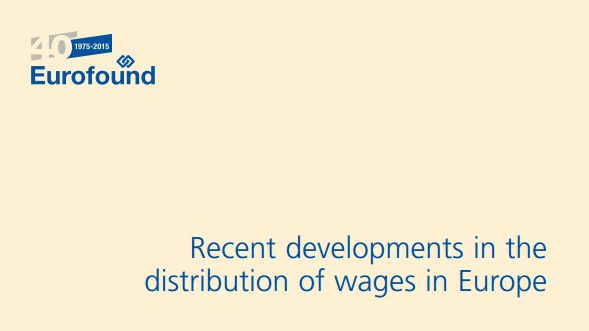
News -
An EU perspective on wage inequality
(Dublin, Ireland): Wage inequality has been increasing overall in Europe since the onset of the Great Recession, and is mainly due to rising wage inequalities within countries, according to a new report from Eurofound, the Dublin-based EU Agency. This marks a reversal of a process of convergence in wage levels that was taking place before 2008, and could be a cause for concern regarding the cohesion of the EU.
Those are the key findings of Eurofound's new report 'Recent developments in the distribution of wages in Europe' which was launched earlier this week. Despite a large body of research on income inequalities, this report takes an innovative focus on wage inequality from an EU perspective. The report gives an overview of recent developments in the distribution of wages in Europe from 2002 to 2011 - the period before and after the Great Recession.
The report shows that the level of wage inequality in the EU as a whole is below that of the US. However, wage inequality in the UK, the EU's most unequal country, is now above that of the US average. The UK, Latvia and Portugal are the three most unequal countries in Europe.
The increasing wage inequalities highlighted in the report are cause for concern, and more frequently updated data on wage developments at EU level is required to further track developments. However, even this does not fully represent the gravity of growing overall levels of inequality. Increasing levels of unemployment, particularly in southern EU member states, has eliminated many lower paid jobs from the labour market. This has had the simultaneous effect of mitigating recorded levels wage inequality, and significantly increasing income inequality.
Download the report from http://bit.ly/1KJcXnh
